
Kod: 04558665
Brains, Buddhas, and Believing
Autor Dan Arnold
Premodern Buddhists are sometimes characterized as veritable "mind scientists" whose insights anticipate modern research on the brain and mind. Aiming to complicate this story, Dan Arnold confronts a significant obstacle to popula ... więcej
- Język:
 Angielski
Angielski - Oprawa: Miękka
- Liczba stron: 328
Wydawca: Columbia University Press, 2014
- Więcej informacji o książce

42.09 €

Dostępna u dostawcy w małych ilościach
Wysyłamy za 10 - 15 dni
Potrzebujesz więcej egzemplarzy?Jeżeli jesteś zainteresowany zakupem większej ilości egzemplarzy, skontaktuj się z nami, aby sprawdzić ich dostępność.
Dodaj do schowka
Zobacz książki o podobnej tematyce
-

Devils' Line, Volume 1
11.96 € -16 % -

Lenin Reloaded
135.72 € -

Homophobic Bullying
74.86 € -

Proverbs, Volume 2
14.50 € -9 % -

Humans and the Environment
154.69 € -

Date Which Will Live
33.06 € -

Cyberbullying in the Global Playground - Research from International Perspectives
157.43 € -

Teutonic Knight vs Lithuanian Warrior
16.32 € -28 % -

Marvel's Loki the Official Collector Special Book
17.64 € -17 % -

Vintage Tea Party Book
24.74 € -22 % -

Der Rhein. Oberes Mittelrheintal von Bingen bis Koblenz (hochwertiger Premium Wandkalender 2024 DIN A2 quer), Kunstdruck in Hochglanz
78.41 € -

Novum Testamentum Graece, 28. revidierte Auflage, with Dictionary (Greek-Englisch)
46.65 € -5 % -

Die besten Rezepte für die Tajine
7.29 € -14 % -

Rainbow Fish: Bilingual Edition (English-Arabic)
9.73 € -21 %
Podaruj tę książkę jeszcze dziś
- Zamów książkę i wybierz "Wyślij jako prezent".
- Natychmiast wyślemy Ci bon podarunkowy, który możesz przekazać adresatowi prezentu.
- Książka zostanie wysłana do adresata, a Ty o nic nie musisz się martwić.
Więcej informacji o Brains, Buddhas, and Believing
Za ten zakup dostaniesz 105 punkty
 Opis
Opis
Premodern Buddhists are sometimes characterized as veritable "mind scientists" whose insights anticipate modern research on the brain and mind. Aiming to complicate this story, Dan Arnold confronts a significant obstacle to popular attempts at harmonizing classical Buddhist and modern scientific thought: since most Indian Buddhists held that the mental continuum is uninterrupted by death (its continuity is what Buddhists mean by "rebirth"), they would have no truck with the idea that everything about the mental can be explained in terms of brain events. Nevertheless, a predominant stream of Indian Buddhist thought, associated with the seventh-century thinker Dharmakirti, turns out to be vulnerable to arguments modern philosophers have leveled against physicalism. By characterizing the philosophical problems commonly faced by Dharmakirti and contemporary philosophers such as Jerry Fodor and Daniel Dennett, Arnold seeks to advance an understanding of both first-millennium Indian arguments and contemporary debates on the philosophy of mind. The issues center on what modern philosophers have called intentionality -- the fact that the mind can be about (or represent or mean) other things. Tracing an account of intentionality through Kant, Wilfrid Sellars, and John McDowell, Arnold argues that intentionality cannot, in principle, be explained in causal terms. Elaborating some of Dharmakirti's central commitments (chiefly his apoha theory of meaning and his account of self-awareness), Arnold shows that despite his concern to refute physicalism, Dharmakirti's causal explanations of the mental mean that modern arguments from intentionality cut as much against his project as they do against physicalist philosophies of mind. This is evident in the arguments of some of Dharmakirti's contemporaneous Indian critics (proponents of the orthodox Brahmanical Mimasa school as well as fellow Buddhists from the Madhyamaka school of thought), whose critiques exemplify the same logic as modern arguments from intentionality. Elaborating these various strands of thought, Arnold shows that seemingly arcane arguments among first-millennium Indian thinkers can illuminate matters still very much at the heart of contemporary philosophy.
 Szczegóły książki
Szczegóły książki
Kategoria Książki po angielsku Humanities Religion & beliefs Buddhism
42.09 €
- Pełny tytuł: Brains, Buddhas, and Believing
- Podtytuł: The Problem of Intentionality in Classical Buddhist and Cognitive-Scientific Philosophy of Mind
- Autor: Dan Arnold
- Język:
 Angielski
Angielski - Oprawa: Miękka
- Liczba stron: 328
- EAN: 9780231145473
- ISBN: 0231145470
- ID: 04558665
- Wydawca: Columbia University Press
- Waga: 458 g
- Wymiary: 229 × 162 × 17 mm
- Data wydania: 06. May 2014
Ulubione w innej kategorii
-

Radical Acceptance
22.31 € -

Mindfulness in Plain English
11.35 € -28 % -

Pema Choedroen's Compassion Cards
14.39 € -21 % -
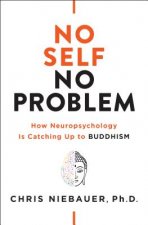
No Self, No Problem
17.74 € -7 % -

The Book of Joy
15.21 € -23 % -
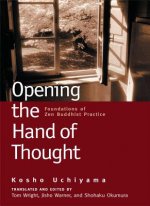
Opening the Hand of Thought
14.80 € -23 % -

Two Zen Classics
29.51 € -18 % -
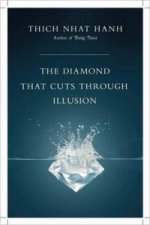
Diamond That Cuts Through Illusion
19.06 € -17 % -

Shobogenzo
22.81 € -

Pocket Pema Chodron
7.19 € -30 % -

Beyond Thinking
24.64 € -14 % -

In the Buddha's Words
18.86 € -27 % -

Wisdom of Insecurity
14.50 € -16 % -

Guru Rinpoche
24.54 € -21 % -

Secret Of The Vajra World
32.35 € -20 % -

When Things Fall Apart
11.05 € -23 % -

Tibetan Book of the Dead
13.38 € -28 % -

Zen Mind, Beginner's Mind
16.42 € -22 % -

When Things Fall Apart
15.81 € -13 % -

No Mud, No Lotus
15.21 € -6 % -
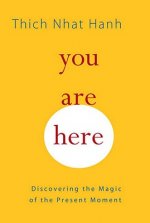
You Are Here
14.29 € -12 % -

Little Book Of Buddhism
7.09 € -25 % -

Compass of Zen
30.83 € -14 % -

Zen Teaching of Huang Po
12.16 € -29 % -

What the Buddha Taught
12.97 € -10 % -

Way of the Bodhisattva
15.51 € -15 % -

Don't be a Jerk and Other Practical Advice from Dogen, Japan's Greatest Zen Master
15.71 € -22 % -
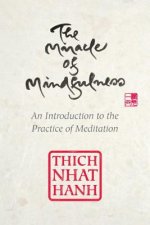
The Miracle of Mindfulness, Gift Edition : An Introduction to the Practice of Meditation
16.42 € -22 % -

Buddhahood Without Meditation
16.83 € -20 % -

Anger
14.80 € -25 % -

ZEN Training
18.86 € -21 % -

The Way of Zen
12.97 € -29 % -

Don't Worry, be Grumpy
15.81 € -12 % -

Karmamudra
35.29 € -
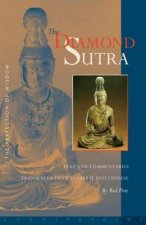
Diamond Sutra
18.66 € -12 % -

Hundred Thousand Songs of Milarepa
37.42 € -18 % -

Buddhism: A Very Short Introduction
9.32 € -28 % -
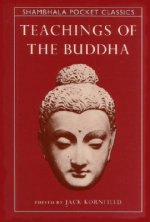
Teachings of the Buddha
9.02 € -20 % -

Tibetan Book of the Dead
15.10 € -17 % -

Wisdom Wide and Deep
28.39 € -21 % -

Primordial Experience
22.61 € -13 % -

Writings from the Zen Masters
8 € -18 % -
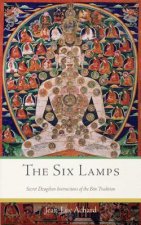
Six Lamps
13.89 € -27 % -

Introduction To Zen Buddhism
13.38 € -28 % -

Mindfulness of Breathing
18.35 € -28 % -

Supreme Source
32.35 € -28 % -
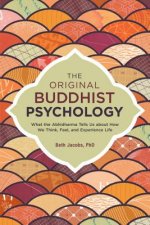
Original Buddhist Psychology
15.21 € -21 % -

Shambhala: The Sacred Path of the Warrior
17.54 € -17 % -

Sayings of Layman P'ang
20.08 € -12 %
Osobní odběr Bratislava a 2642 dalších
Copyright ©2008-24 najlacnejsie-knihy.sk Wszelkie prawa zastrzeżonePrywatnieCookies


 Vrácení do měsíce
Vrácení do měsíce Zdarma od 49.99 €
Zdarma od 49.99 € 02/210 210 99 (8-15.30h)
02/210 210 99 (8-15.30h)